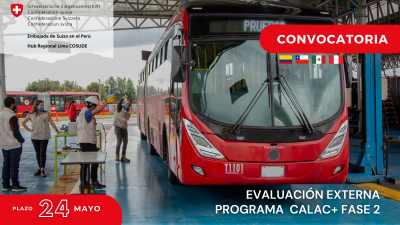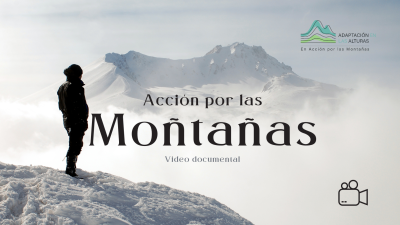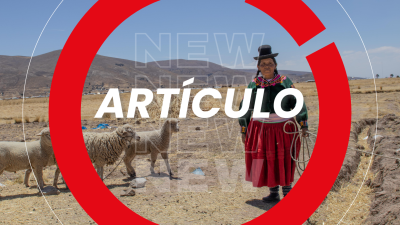At the “SIRWASH Dialogues” workshop, SDC held a high-level panel, which was a good opportunity to promote exchange and dialogue on rural water and sanitation policies in the region.

© Swiss Cooperation SDC
It is a major challenge for each country to work in global partnership to achieve the Sustainable Development Goals with its policy frameworks and strategies, in striving to ensure availability and access to affordable, clean, pollution-free and sustainably managed water and sanitation for all by 2030, in line with the United Nations 2030 Agenda, leaving no one behind.
Another major challenge is the inequality in universal access to water and sanitation, particularly with regard to the urban-rural divide; besides improving the quality of services; combating the high levels of contamination of water sources; rural institutions; improving monitoring systems, water quality and the definition of policies and practices in the sector. In addition, liaison and close coordination between public sector agencies and other relevant stakeholders, such as cooperation agencies; and the active participation of civil society, the private sector and academia in the search for solutions in the sanitation sector.
The SIRWASH panel on “working in global partnerhip towards the SDG’s” was composed of the following panellists: Christian Frutiger, Deputy Director of the Swiss Agency for Development and Cooperation (SDC); Javier Hernández Campanella, Vice-Minister of Housing, Construction and Sanitation, Ministry of Housing, Construction and Sanitation of Peru; Henry Moreno, Senior Specialist of the Water and Sanitation Division of the Inter-American Development Bank (IDB); Paulo Roberto Martinho de Souza, Cabinet Chief of the Presidency of the National Health Foundation of the Ministry of Health of Brazil; Guito Edouard, National Director of the Department of Drinking Water and Sanitation (DINEPA) of Haiti; and Orlando Reyes, Director of Drinking Water and Sewerage of the Vice-Ministry of Drinking Water and Sanitation of the Ministry of Environment and Water of Bolivia.
SIRWASH a partnership of collaboration for action
To date, the Latin American region is one of the regions in the world that has made most progress in terms of coverage for reaching SDG 6, but there are still great challenges for improving the quality of water and sanitation services, and for closing the gaps between urban and rural areas and reducing inequalities.
Christian Frutiger highlighted that it is crucial to reach SDG 6 because it is linked to other SDGs and therefore key to achieve the 2030 Agenda. As a result, governments and bilateral and multilateral agencies have started to rethink the time horizon more realistically beyond 2030, given the current circumstances, and to conduct a more realistic analysis for reaching the first proposed targets.

“Switzerland has a strong commitment and responsibility to continue helping to solve global water problems, and particularly to the efforts to ensure the human right to water and sanitation”. It will continue to provide thematic expertise; facilitate forums for policy dialogue with and between governments and sector agencies to give more and better attention to rural areas; support countries in developing efficient practices that take into account the most pressing needs and priorities of rural areas; strengthen experience sharing and knowledge management and consolidate innovative approaches with the involvement of the private sector, he said.
Finally, he pointed out that this workshop will be the beginning of the exchange between the countries of the region that will contribute not only to the regional but also to the global dialogue, and it is hoped will continue contributing to the dialogue in the Water and Sanitation sector by putting NO ONE LEFT BEHIND at the centre of the agenda.
Javier Hernández pointed out that the National Sanitation Plan 2021-2025 of Peru has been updated and is now in place, which has improved coordination with the Regional Sanitation Plans. Project financing is now given priority through the use of the digital tool PRESET (Platform for Registration, Evaluation and Monitoring of Water and Sanitation Technical Files) to speed up file approval. This strategy is expected to boost public demand for achieving SDG 6.

Henry Moreno spoke on the five challenges for the sector in Latin America: i. Access, quality and inequality; ii. Environmental resilience and sustainability; iii. Governance, information and financing; iv. Service management and private participation; v. Innovation and digital transformation. He also pointed out that one of the most complicated challenges is inequality, which is aggravated by poverty and the difficulties posed by sparse communities.

“Open defecation is a persistent problem in Latin America and the Caribbean, with some 15 million people practicing it, 50 per cent of whom live in rural areas. Haiti, Bolivia, Colombia, Peru and Brazil are the countries with the highest number of people who practice open defecation in rural areas,” he said.
Moreno explained that optimum sanitation defines solutions in line with each individual reality and in stages in order to achieve environmental health. It is based on individual solutions that gradually move towards collective or semi-collective solutions in accordance with resources and capacities.
He also discussed the need to increase wastewater treatment targets in rural areas, a situation that is already complex in the urban sector.
In Brazil, FUNASA launched the National Rural Sanitation Programme (PNSR) in 2019, which is improving strategies for achieving SDG 6. The PNSR builds on valuable learning from public-private partnerships and successful models in the country. Paulo Martinho commented that working with local authorities has been an important milestone, together with working to raise the qualifications of human resources in the communities. He pointed out the need to carry out exchanges of experience with tariff models and sanitation solutions appropriate to the various territories and customs.
Martinho pointed out that the new Water Resources Act is an opportunity to connect with cultural diversity, different water and land uses and to build at scale an information system that reflects the country’s diversity.

Guito Edouard stressed the importance of territorial planning for forging solid alliances with the participation of all players who live in or manage the territory, especially in areas inhabited by sparse communities. He also pointed out that in Haiti, over 90 per cent of the budget comes from international cooperation which, in places hit by the ravages of nature, makes the operation and maintenance of the service difficult. He highlighted the role that international cooperation can play as “a great ally in avoiding losing the progress made”, referring to the political crisis in Haiti. He also mentioned the importance of access, availability and quantity of water, associated with adequate water resource management, and the issue of quality. He stressed that access and quality are two concepts that should be linked and that they are underpinned by the management models, not only for implementation but also for post-implementation, because this will provide sustainability in the medium and long term.

He also highlighted the relationship between planning, investment and financing, and inter-agency work, not only centrally with the governing body, but also with the Ministry of Finance and the Ministry of Production, making it clear that the issue of water goes across the board and is especially so in rural areas. Finally, he highlighted an institutional weakness in the regions: political decisions leading to a high turnover of specialists and changes in technical staff, which causes the institutional memory of good practices to be lost. International cooperation can therefore be an excellent facilitator for building the bridges to capitalise on these experiences.
Orlando Reyes emphasised the formalisation of operators to guarantee the continuity of the service. He said that over 70 per cent of operators are in urban areas, while in rural areas operators have trouble guaranteeing the sustainability of services.

He said that Bolivia has an authority for the inspection and social control of drinking water and sanitation under the Ministry of Environment and Water, a government agency that is responsible for registering and regulating all service providers, guaranteeing the quality and continuity of the service. “We recognise that there are weaknesses, but as this is a government agency, we are committed to strengthening it,” he added. In Bolivia, over 70 per cent of service providers are in urban areas and the remaining 30 per cent in rural areas, and despite the fact that they are all registered and regulated, it is difficult – especially with the smaller ones – to guarantee the sustainability of the service, he said.
The SIRWASH Dialogues: Examining public policy towards sustainable and innovative rural water, sanitation and hygiene services in Latin America, took place on 23 and 24 June in Lima. Participants included government representatives from the countries in which the programme is implemented and sector agencies including regulators, plus specialists and technicians from civil society, representatives of multilateral banks in other regions to promote South-South cooperation, and key sector stakeholders. For more information on the SIRWASH Workshop,, click here.
Useful links:
FS IDB (spanish)
FS SIRWASH (spanish)
Resources:
PDF Presentation of Henry Moreno, IDB (spanish)








